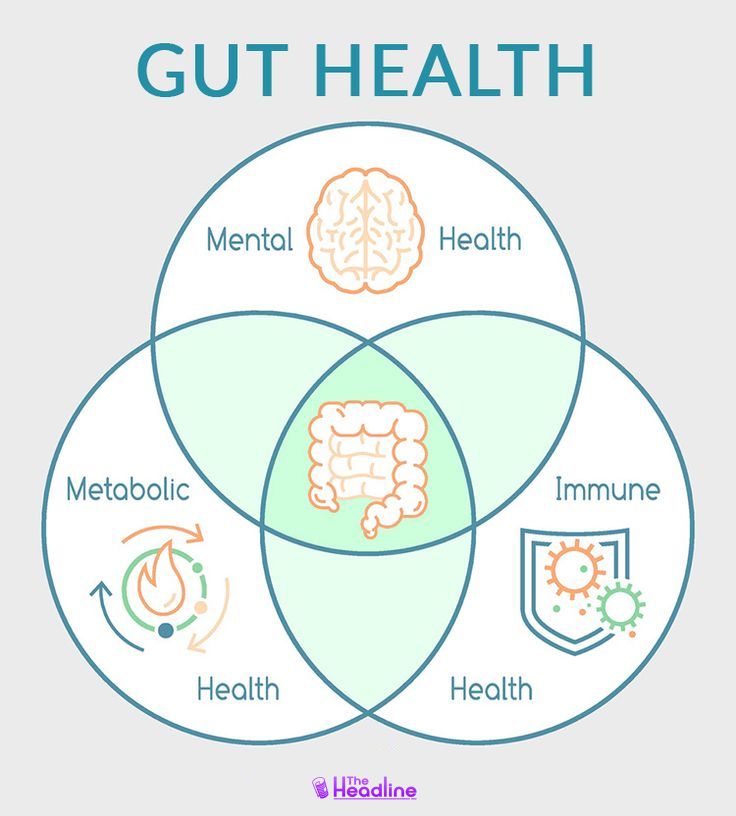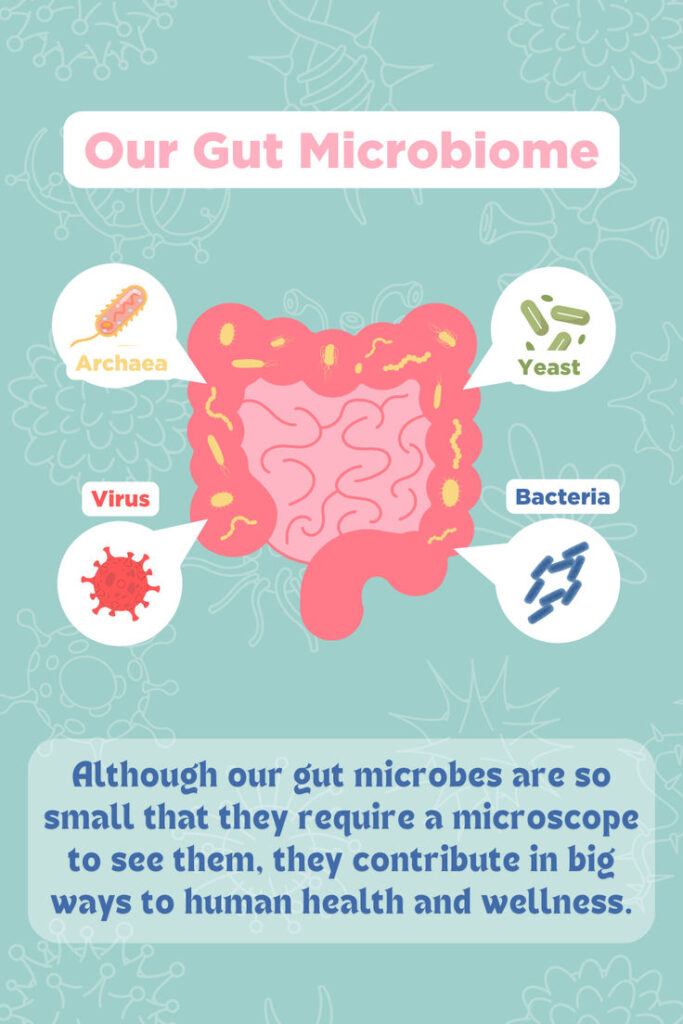
The Microbiome in Mental, Immunity and Chronic Disease Prevention: Its Potential Application
The microbiome–the ecosystem of trillions of microbes that exist both inside and on our body–has long been recognized for its role in digestion. But research conducted over the past 10 years has shed new light on its profound effect on various areas of health, such as mental wellness, immune function and chronic disease prevention. This article investigates these influences of gut bacteria on overall wellness by showing their significance on mental wellbeing, immunity function and chronic disease prevention.
What Is the Microbiome? Our human microbiome consists of bacteria, fungi, viruses and other microorganisms found in areas like our gut, skin and mouth – including some that help support digestion or protect us against pathogens – that live together within us in various capacities to protect and regulate overall bodily functions and sustain life. While most are harmless or even beneficial to human health.
Researchers are keenly interested in studying the gut microbiome as it serves as an integral factor of human health. Estimations put its population of microbes at over 100 trillion; making it by far the largest microbe community found anywhere within humans’ bodies and impacting numerous physiological processes in complex ways.

Microbiomes and Mental Health
One of the most fascinating areas of microbiome research relates to its influence on mental health. Over the years, scientists have observed something called the gut-brain axis — an bidirectional communication channel between gut bacteria and brain neurons — which allows gut to send signals directly into brain, thus impacting mood, stress levels and cognitive ability.
Studies have demonstrated how an optimal microbiome can positively influence mental wellbeing. People suffering from depression and anxiety tend to have an unbalanced gut microbiome with reduced diversity among its bacteria species while those who maintain healthier gut environments often feature a wider diversity. This indicates the gut’s importance in modulating mood and emotional responses.
Studies have linked specific gut bacteria with producing neurotransmitters like serotonin and dopamine that play an integral part in mood regulation, like serotonin and dopamine. An unhealthy gut microbiome could hinder production of serotonin — known as “feel good hormone”–thus contributing to mood disorders like depression or anxiety.
The Microbiome and Immunity
One key function of the microbiome is its influence on our immune systems. Since 70-90% of immune cells reside within our guts, beneficial bacteria help educate immune cells on distinguishing harmful pathogens from harmless substances – thus decreasing risks such as autoimmune diseases or allergies.
Dysbiosis–an imbalance in gut microbiota–has been associated with overactive immune responses that lead to conditions like IBD, rheumatoid arthritis and other autoimmune diseases. On the flipside of that coin however is diversity within one’s microbiome that strengthens its capacity for infection defense through production of beneficial molecules like cytokines and antimicrobial peptides produced from bacteria present.
Balanced microbiomes play an essential role in upholding the integrity of the intestinal barrier and protecting us against pathogens that might otherwise enter our bloodstream and trigger immune reactions. If disrupted, however, this barrier weakens, creating conditions known as leaky gut syndrome – often associated with various inflammatory and autoimmune conditions.
The Microbiome and Chronic Disease Prevention
Microbiomes play an essential part in protecting against chronic illnesses like obesity, diabetes and heart disease. Studies have demonstrated that individuals who maintain a healthy microbiome tend to enjoy improved metabolic health as well as greater immune response effectiveness – all factors associated with lower risks of chronic illnesses and reduced likelihood of complications developing over time.
Example of gut bacteria influence on fat storage and energy metabolism are numerous. Furthermore, an imbalanced microbiome has been linked with insulin resistance, leading to type 2 diabetes. Studies also demonstrated how an abundance of microbes helps control cholesterol and blood pressure levels thus decreasing cardiovascular disease risk.
Furthermore, the microbiome’s role in chronic inflammation plays a pivotal part in protecting individuals against diseases like heart disease and cancer. An imbalanced microbiome often drives chronic low-grade inflammation; by maintaining a balanced gut bacteria profile individuals may reduce the risk of inflammation-related conditions and ultimately avoid chronic illnesses altogether.
With evidence accumulating to prove the significance of microbiomes in mental health, immunity and chronic disease prevention, it’s key to take measures that promote balanced and diverse gut microbiome populations. Here are a few suggestions on promoting gut health:
Eat a Diverse Diet: Eating foods such as fruits, vegetables, whole grains and fermented products is one way to promote diversity within our microbiome. Fiber provides fuel for beneficial gut bacteria.
Probiotics and Prebiotics Should Be Included: Probiotics are healthy bacteria found in fermented foods like yogurt, kefir, kimchi, sauerkraut. Prebiotics on the other hand provide non-digestible fibers which nourish good bacteria found in garlic onions bananas etc.
Limit Processed Foods and Sugar: Diets high in processed food and sugar may contribute to dysbiosis by encouraging harmful bacteria growth in your gut flora, leading to dysbiosis. By cutting back, we can maintain healthy balance amongst gut flora.
Avoid Overuse of Antibiotics
While antibiotics can be an invaluable asset in treating bacterial infections, their misuse may harm the microbiome by wiping out beneficial bacteria that contribute to good health. Take antibiotics only as directed and avoid unnecessary usage.
Manage Stress: Prolonged exposure to chronic stress can significantly disrupt gut microbiome balance by altering gut motility and increasing intestinal permeability, so activities like meditation, yoga and regular physical exercise may help alleviate tension while simultaneously supporting gut health. Meditation, yoga and regular fitness exercise all play important roles in managing this strain on health.
Stay Active: Evidence suggests that regular physical activity helps maintain a healthy gut microbiome by encouraging beneficial bacteria. Aim for at least 30 minutes of moderate exercise most days throughout the week for best results.
Conclusion :
Our microbiome plays an essential role in overall health, impacting everything from mental well-being and immunity to chronic disease prevention and management. By maintaining a healthy gut through balanced nutrition, stress reduction techniques, and regular physical activity, individuals can take proactive steps toward bettering their wellbeing and avoiding various conditions. As research into microbiomes progresses further it’s becoming apparent that our inner world holds much greater potential health advantages than once anticipated.
See more:https://healthybodyboost.net/wp-admin/post.php?post=2055&action=edit
 healthybodyboost.net Healthy Body Boost
healthybodyboost.net Healthy Body Boost



